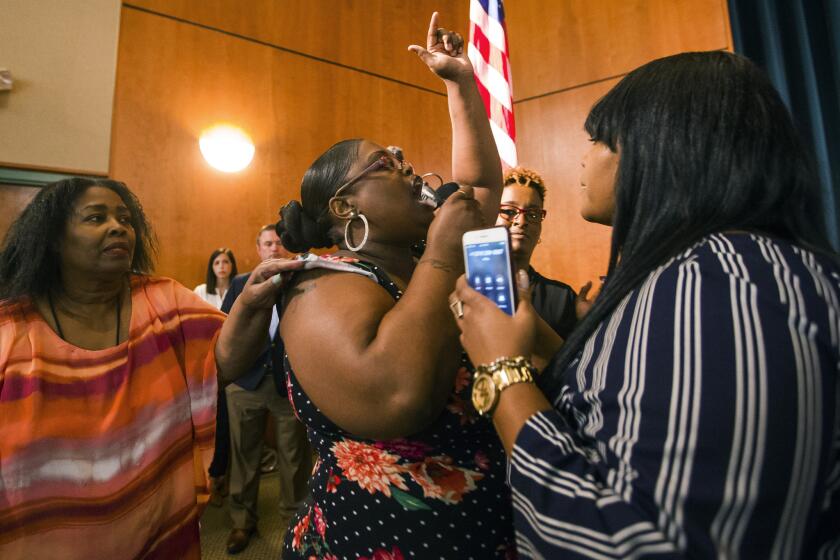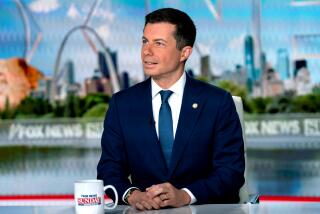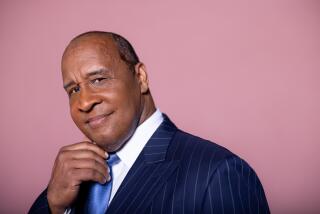The ‘Mayor Pete’ era is over in South Bend, Ind. What legacy does Pete Buttigieg leave?
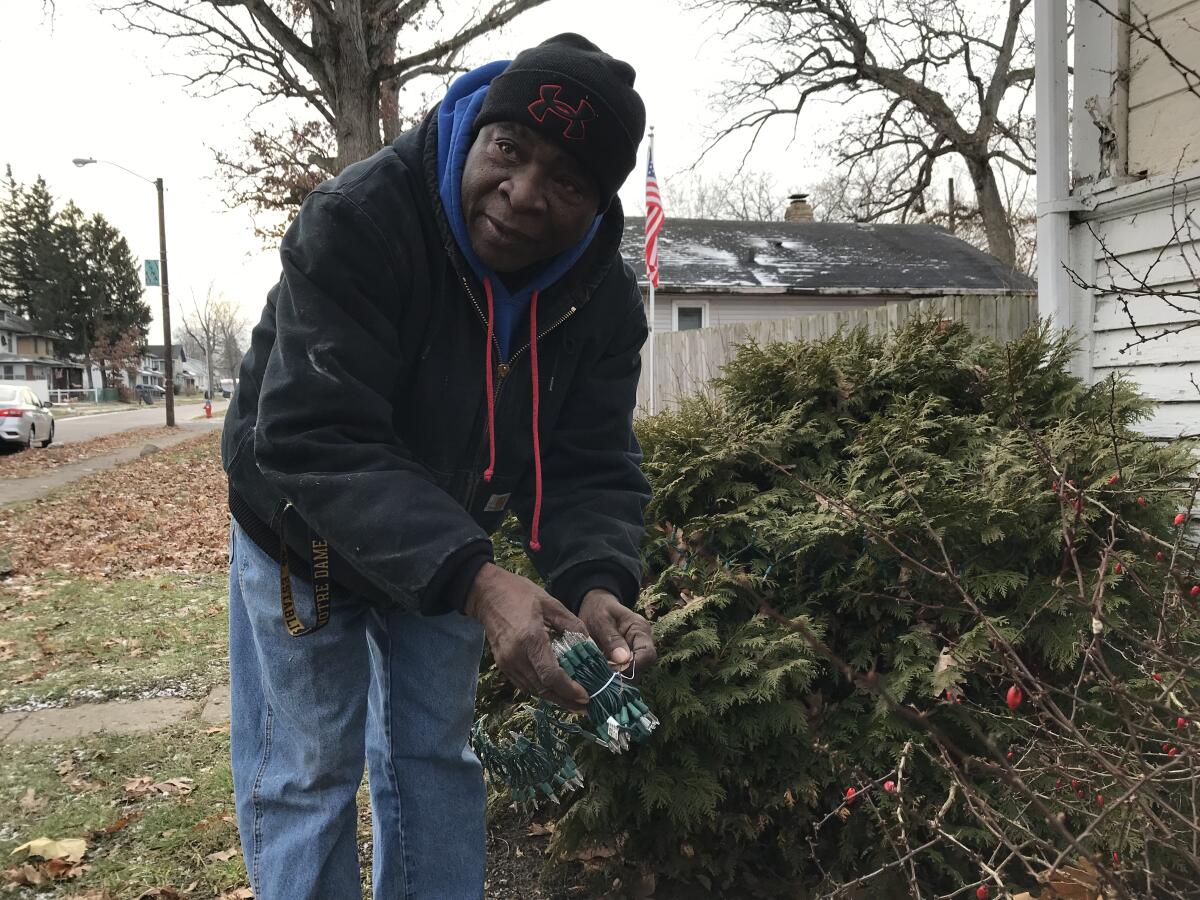
- Share via
SOUTH BEND, Ind. — On Jan. 1, Pete Buttigieg’s second term ended, and the “Mayor Pete” era in South Bend was over. In the Democratic presidential candidate’s telling, he presided over a Rust Belt comeback story in Indiana’s fourth-largest city, a metaphor for what is possible elsewhere in America.
Before Buttigieg took office in 2012, downtown had been moribund for decades. Aging, abandoned homes dragged down spirits in poorer neighborhoods. Unemployment was high, wages low, evictions common. White residents were fleeing by the thousands. A Newsweek article declared South Bend, population 101,860, one of America’s “dying cities.”
For the record:
11:05 a.m. Jan. 9, 2020An earlier version of this story said Pete Buttigieg had called his demotion of South Bend’s black police chief his “first serious mistake as mayor.” Buttigieg wrote in his memoir that the mistake was his initial support of the chief.
Today, unemployment in the Greater South Bend area is less than 4%, down from nearly 10%; development has accelerated in the city’s downtown; and the population has stopped shrinking. Local business boosters recently raised street banners that said, “Thanks Mayor Pete.”
“South Bend’s trajectory has been transformed,” Buttigieg said in his farewell address to the city’s Common Council on Dec. 9.
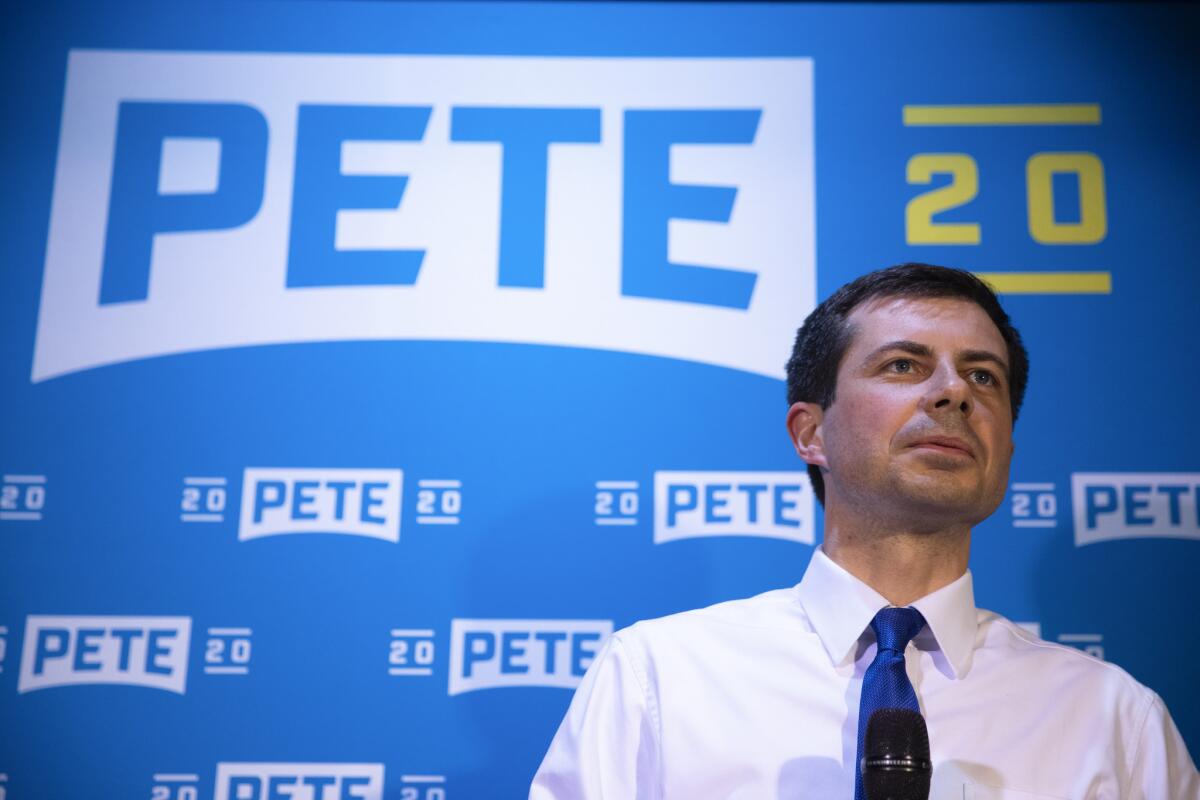
That’s the resume that Buttigieg is promoting to make the jump from mayor to president. It’s a part of his appeal to Democrats who are anxious to win back Rust Belt voters who defected from the party in 2016.
But there’s a hitch. Among residents of color, who make up nearly half of South Bend’s population, reviews of Buttigieg’s legacy are noticeably mixed — some positive, some outright hostile.
The local criticism has taken on national importance in the Democratic primary, where he has struggled to attract voters who aren’t white. It’s a weakness that’s been offset by Buttigieg’s significant support in the two states that hold the first nominating contests, Iowa and New Hampshire, where black and Latino voters are deeply underrepresented compared with the Democratic Party overall.
“Pete isn’t ready to lead the free world, a world of huge diversity and tremendous need. He is not ready. That’s all I can say behind that,” said Common Council member Henry Davis Jr., one of Buttigieg’s most vocal critics, who unsuccessfully ran against the mayor in 2015.
But other black leaders have rallied to Buttigieg’s side, including the area’s NAACP president, Michael Patton, who has said he’s “grateful to Mayor Pete” for his work.
Life remains a struggle for many South Bend residents. Poverty is still stubbornly high, and homeless residents are a regular sight.
The Greater South Bend area “has become more segregated between White and African American/Black residents since 2010,” according to a forthcoming regional housing report prepared by South Bend and neighboring Mishawaka. (The report did not examine segregation data in South Bend alone, though the city is by far the most populous town in the metropolitan statistical area that was analyzed.)
The city also has “one of the highest foreclosure rates in the United States,” with an eviction rate that is “extremely high,” the report said. In South Bend, racial discrimination is the primary factor cited by tenants when making fair-housing complaints, bucking the national trend, where disability is the most common complaint, according to the report.
Buttigieg’s campaign defended his record, saying he devoted resources to a variety of programs to create affordable housing, fund home repairs and increase shelter capacity for homeless residents, while pointing to some forces that were beyond the city’s control.
“Indiana has pretty hostile laws toward tenants, unfortunately,” campaign spokesman Sean Savett said of the city’s foreclosure and eviction numbers.
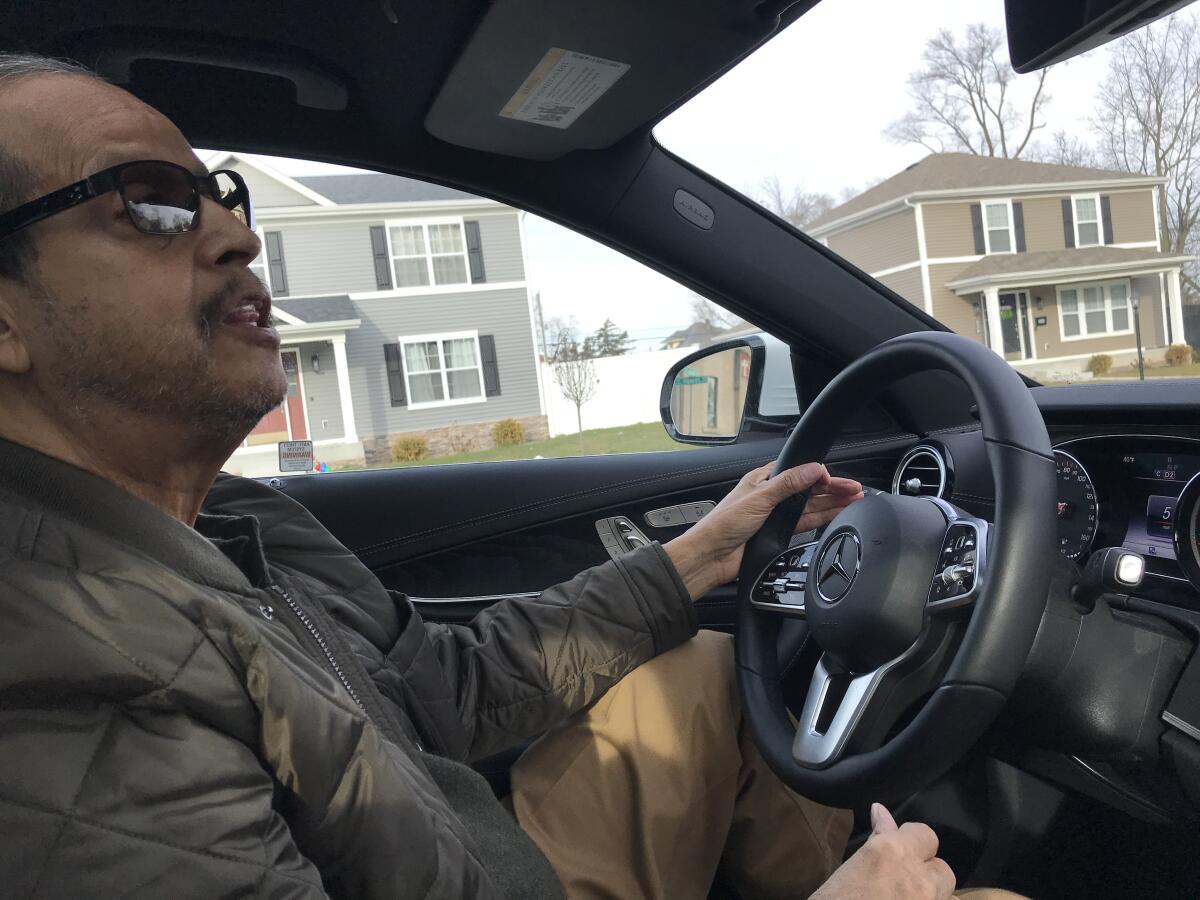
Seymour Barker, 74, of Granger, Ind., who helps run a community development corporation, 466 Works, that receives grants from South Bend to help build new housing on the southeast side, said “the city has supported us every step of the way, and it’s all happened under the administration of Mayor Pete.”
“I can’t tell you the experience of other African Americans under him,” Barker said, “but that’s been our experience with him.”
::
After taking office, Buttigieg went to work on the city’s blight, launching an initiative to repair or demolish 1,000 abandoned or derelict homes in 1,000 days, a goal he reached ahead of schedule.
Common Council member Regina Williams-Preston, an occasional critic from the city’s black community, accused Buttigieg of moving too quickly against property owners who didn’t have the money to make repairs right away. Buttigieg acknowledged the program needed some adjustments.
But other residents happily welcomed Buttigieg’s demolition work. On a recent Thursday afternoon in December, two South Bend Bureau of Streets trucks rumbled by as James Underwood strung up Christmas lights outside a home on the 1100 block of Johnson Street, the block that saw the most houses targeted for repair or removal, according to city data.
As a result of that program, Underwood, a 60-year-old factory worker, bought a condemned home to fix up, between shifts, to give to one of his four children. He’s still trying to track down the absentee owner to finalize the sale, but he couldn’t be happier that two abandoned “eyesores” across the street had been razed.
“I would put a vote toward him because of what he did in this neighborhood and others,” Underwood said of Buttigieg. As he spoke, city workers in green vests piled out of their trucks to clear leaves from the sidewalks outside a home charred by a fire.
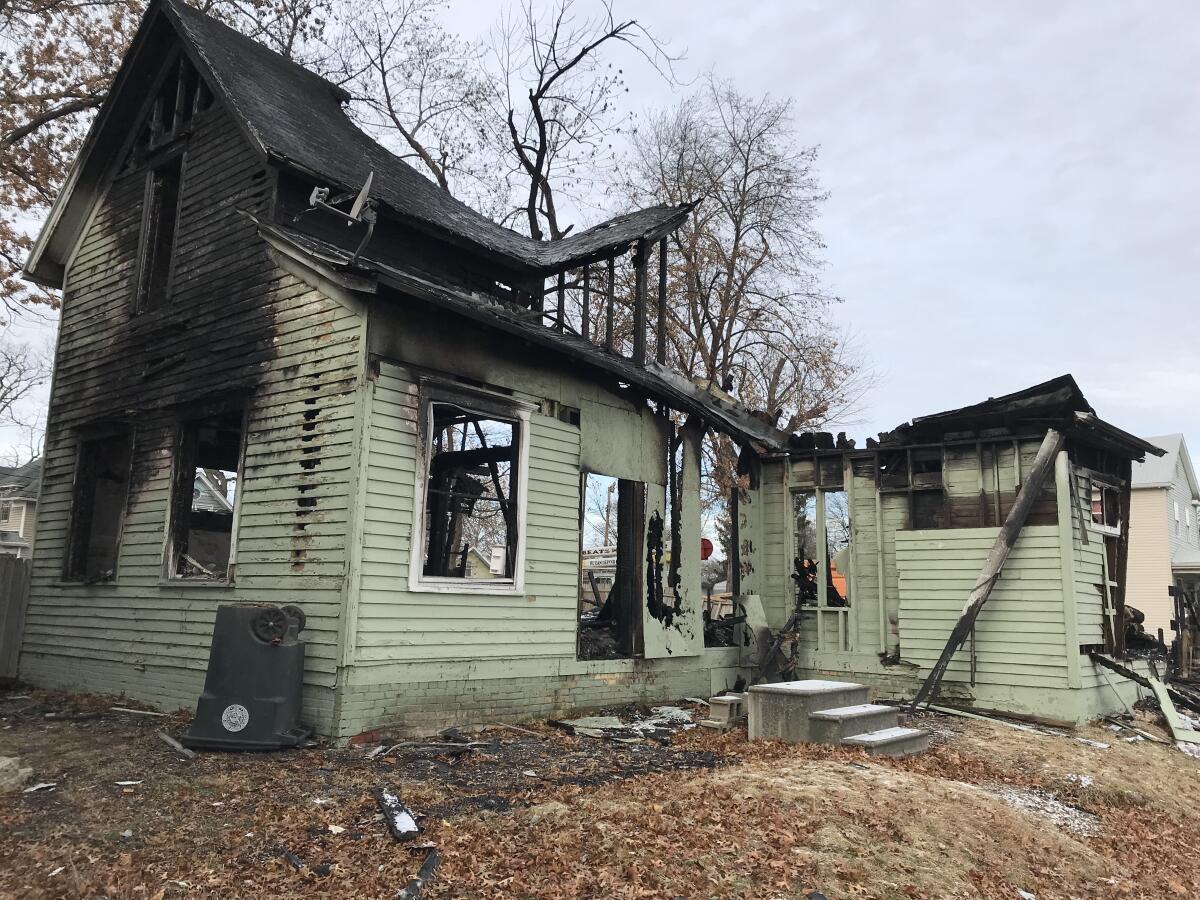
As Buttigieg progressed through his administration, he benefited from some fortunate timing. He arrived in office after the worst shocks of the Great Recession and then served through an uninterrupted run of national growth.
During Buttigieg’s first year, South Bend processed construction permits for commercial and residential projects valued at $69.8 million, city data showed. Within four years, in 2016, that figure had blossomed to $190 million.
Buttigieg harnessed that growth to lure new private investment. In the city’s downtown, Buttigieg invested public dollars to make the streets more walkable and to help finance some private development. Two new hotels opened, and young professionals started moving in, which boosted neighborhood merchants.
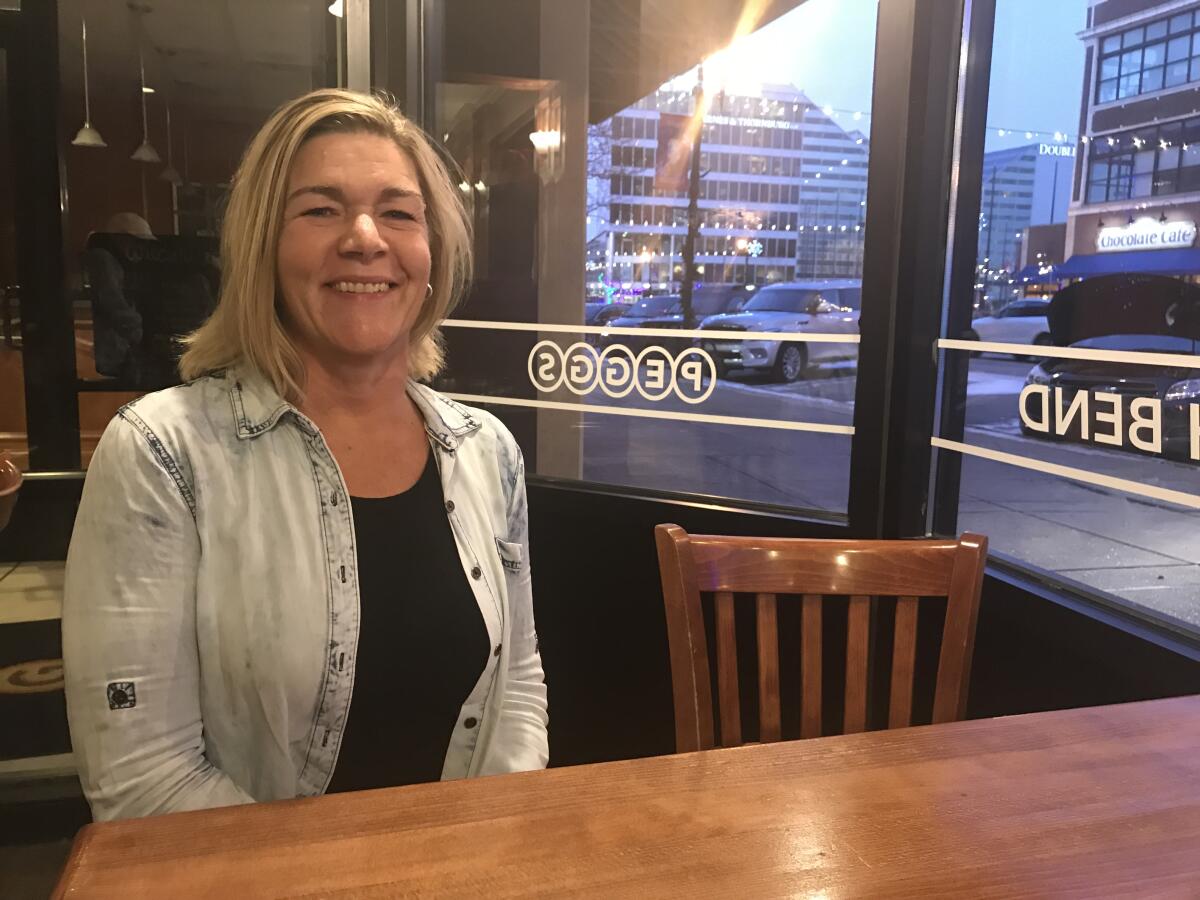
When South Bend native Peg Dalton opened her restaurant in 2001, since renamed Peggs, “there was literally not a car on the street,” she said. As she spoke to a reporter, the spaces outside her restaurant that day were all taken.
Buttigieg cultivated local business leaders to draw support for his political initiatives, according to Dalton, telling them on issues such as raising pay for city workers or changing the flow of city streets downtown: “I need your support on the ground.”
“He’s not afraid to ruffle feathers and get a job done that he thinks needs to be done,” said Dalton, 55.
One of the biggest changes to South Bend under Buttigieg’s administration was the growth of the city’s Latino population, now estimated to make up more than 15% of the city’s residents. Buttigieg pushed for an identification-card program designed so residents without ID, including immigrants, could get access to social services.
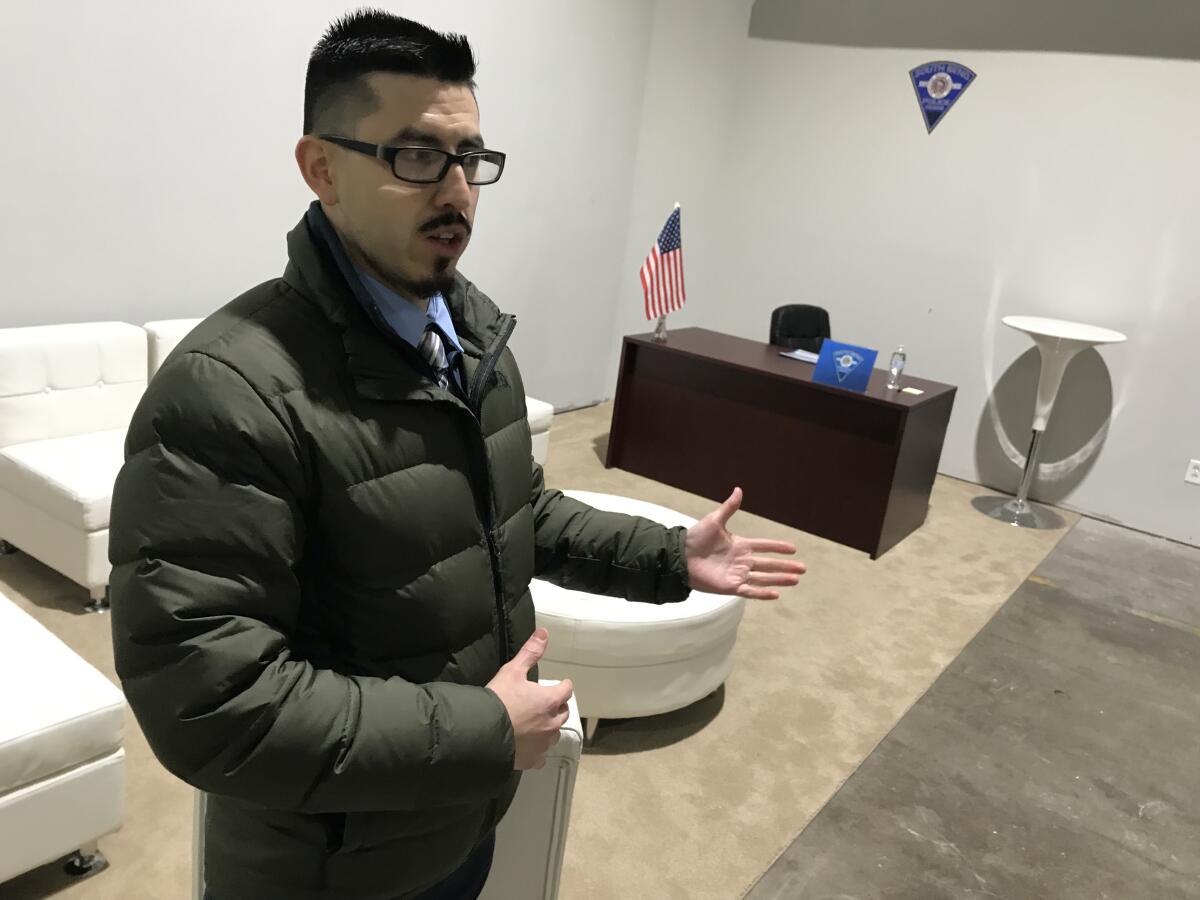
Paul Beltran, 33, a healthcare case manager who emigrated from Ecuador and a volunteer at his church, Vida Nueva Church of God, credited Buttigieg for being “accessible and present” and for the times he addressed residents in Spanish.
“It’s not 100% fluent,” Beltran said of Buttigieg’s Spanish, but “he could carry a conversation, to a point.”
Nanci Flores, a prominent local activist, said there was still work to be done to assist the city’s immigrant community. But “even when we don’t always get it right, I still see a city working to follow a compassionate and inclusive example,” Flores said.
Buttigieg’s relationship with black residents, who make up more than a quarter of the city’s population, has been much rockier.
Some black residents began distrusting Buttigieg when he demoted the black police chief less than three months after arriving in office. There were allegations that the chief had improperly recorded white officials accused of making racist comments. In his memoir, Buttigieg wrote that initially supporting the chief had been his “first serious mistake as mayor.”
During Buttigieg’s tenure, the number of black police officers also dropped by nearly half, according to the South Bend Tribune.
Tensions erupted in June after a white South Bend police officer shot and killed a black man, Eric Jack Logan. The officer, who didn’t have his body camera turned on, said Logan had threatened him with a knife. Angry black residents heckled Buttigieg at a town hall meeting. “We don’t trust you!” one woman shouted.
A town hall featuring Mayor Pete Buttigieg broke into near chaos Sunday afternoon as the Democratic presidential candidate tried to respond to community anger over a white police officer’s killing of a black man.
“It’s a mess. And we’re hurting,” Buttigieg said of the shooting in the June presidential debate.
As with many such protests around the nation, the angst went much deeper than a single shooting.
“I have been here all my life, and you have not done a damn thing about me or my son or none of these people out here,” Logan’s distraught mother, Shirley Newbill, told Buttigieg at a protest. “It’s time for you to do something.”
But Underwood, the factory worker, who is black, said he thought some of the criticism of Buttigieg was “overblown.”
“One guy can’t fix all the problems,” Underwood said. “You can’t blame one guy.”
More to Read
Get the L.A. Times Politics newsletter
Deeply reported insights into legislation, politics and policy from Sacramento, Washington and beyond. In your inbox twice per week.
You may occasionally receive promotional content from the Los Angeles Times.
